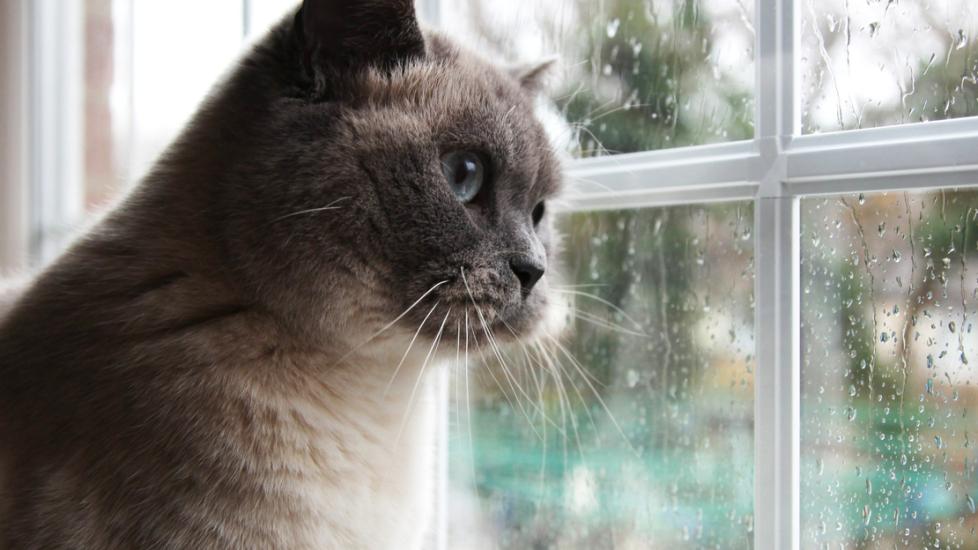 Cats, with their mysterious and often aloof demeanor, have long been a source of fascination for pet owners. Their ability to bounce back from injuries or illnesses can sometimes be astonishing, leading many to wonder if cats possess an innate sense of when they are nearing the end of life. This question is not only intriguing but also deeply personal for those who share their lives with these beloved feline companions. In this article, we delve into the complex world of cat behavior and explore whether our furry friends may indeed have some awareness of their own mortality.
Cats, with their mysterious and often aloof demeanor, have long been a source of fascination for pet owners. Their ability to bounce back from injuries or illnesses can sometimes be astonishing, leading many to wonder if cats possess an innate sense of when they are nearing the end of life. This question is not only intriguing but also deeply personal for those who share their lives with these beloved feline companions. In this article, we delve into the complex world of cat behavior and explore whether our furry friends may indeed have some awareness of their own mortality.
One prevailing theory suggests that cats do in fact seem to understand when they’re dying. Veterinarian Dr. Elizabeth Stelow, former director of the Behavioral Medicine Clinic at the University of California Davis School of Veterinary Medicine, proposed that cats exhibit certain behaviors during their final days that indicate a heightened state of awareness about their impending death. These behaviors might include:
- Increased Affection: Cats may become more affectionate towards humans or other pets, seeking out physical contact and spending more time close to their caregivers. It’s as though they are trying to say goodbye in their own way.
- Withdrawal: Some cats will isolate themselves from others, perhaps finding a quiet spot where they feel safe and comfortable as they face what lies ahead.
- Eating Preferences: Ailing cats might suddenly prefer different foods or lose interest altogether, which could be interpreted as a primal instinct to conserve energy or prepare for the transition.
- Changes in Vocalization: Cats may meow more frequently or differently than usual, possibly communicating distress or attempting to convey something specific to their caretakers.
- Restlessness: Pacing, circling, or even climbing higher perches despite hind-limb weakness has been observed in terminally ill cats, suggesting a desire to find a suitable place to rest permanently.
However, it’s important to note that these changes could also be attributed to the discomfort caused by illness itself rather than a conscious understanding of approaching death. The challenge lies in determining whether these actions stem from a cognitive recognition of finality or simply reflect physiological responses to pain and disease.
Moreover, research on animal cognition regarding self-awareness and emotional depth remains limited compared to human studies. While scientists continue to learn more about how animals perceive and process information about health status and environment, definitive conclusions remain elusive. Despite this, anecdotes abound among cat enthusiasts who claim their pets showed signs of knowing their time was near—stories that tug at heartstrings and reinforce the bond between species.
As responsible pet parents, it’s crucial to maintain a vigilant eye on our cats’ well-being regardless of any perceived premonitions they may display. Regular check-ups with veterinarians, prompt treatment of ailments, and attentive caregiving contribute significantly to extending quality years together. Observing subtle behavioral shifts can alert us to potential problems early enough for intervention; thus, recognizing such signals becomes part of our duty as loving stewards of our feline friends’ welfare.
In conclusion, while there is no concrete evidence proving conclusively that cats know when they are dying, several indicators suggest they might possess a rudimentary comprehension of their deteriorating condition. Whether through intuition or biological cues, these creatures demonstrate remarkable adaptability throughout their lives up until its very last moments. As we navigate the complexities surrounding this topic alongside advances in veterinary medicine and ethology research, one thing remains clear: Our love for our pets transcends any mystery surrounding their inner thoughts or feelings. And so, we cherish every purr, every cuddle, every moment spent in their company—for they give us far more than we ever give them in return.
